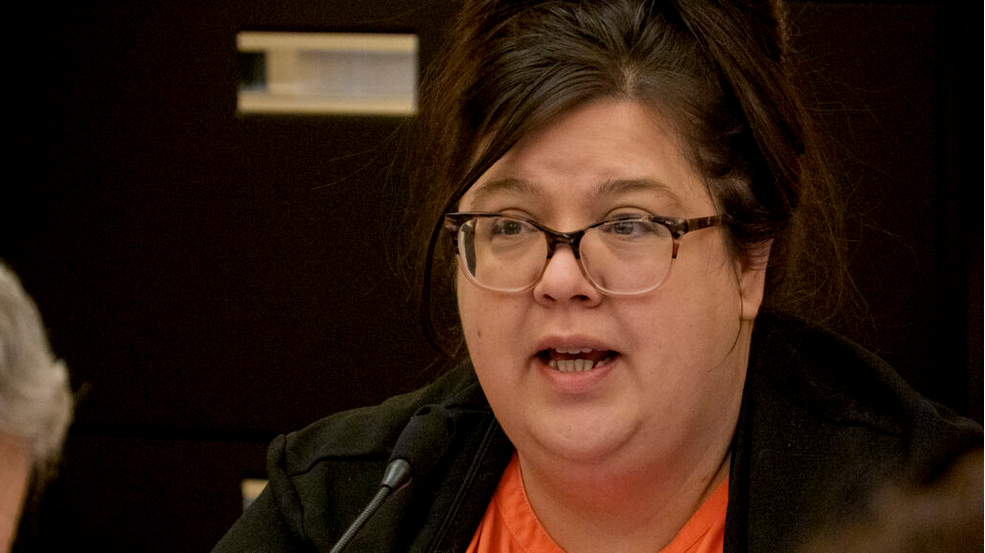
By RACHEL MIPRO
Kansas Reflector
TOPEKA — Rep. Heather Meyer is familiar with the battle between lifesaving medication and crippling medical debt.
Meyer, who was diagnosed with type 1 diabetes at the age of 12, grew up with a single father who also had type 1 diabetes. With finances tight and health insurance unaffordable, the two had to ration bottles of insulin, reuse syringes and go without proper testing equipment, trying to gauge their blood sugar levels based on how they were feeling.
“We struggled constantly,” Meyer said. “And it was between rationing insulin and paying bills. And which are we going to do? We know we need to stay alive and we want to live. So we’re going to do our best with what we have to stay alive. But that meant our blood sugars were always running on the high side, or they would tank out because we were overcorrecting for a hike.”
To help out families in similar situations, Meyer is championing legislation that would set limits on insulin prices. The bill is an attempt to lessen the financial burden of the thousands of Kansans living with diabetes.
The bill was introduced Monday in the House Health and Human Services Committee by Rep. Susan Ruiz, a Shawnee Democrat, on behalf of Meyer, a Overland Park Democrat. The legislation had not been published on the Legislature’s website as of Tuesday evening. Meyer said the financial impact of the bill is still unknown, and she is working with the state’s insurance commissioner to hammer out fiscal details.
The bill would set the maximum co-pay at $35 per month for insulin and insulin products under a qualifying program, eligible to both uninsured and insured people. The only exception would be people on Medicaid or Medicare, because federal insurance already has provisions for people with diabetes.
Meyer said another component of the bill was a provision allowing for a 30-day emergency supply of insulin per year, along with setting price caps on diabetic supplies, such as glucometers and syringes. The price cap for equipment would be set at $100.
“We wanted to make sure that was included because you know things happen,” Meyer said. “Your insulin can go bad. You can leave it in your car and it freezes or gets too hot. You can drop it on the floor and break your vial. You can, like I did, accidentally leave it at work.”
Meyer said she has dealt with soaring insulin prices for much of her life, paying more than $300 dollars per month for insulin at times. Though her insurance as a legislator is better than her past insurance, she said she is still struggling with exorbitant costs for necessary equipment.
Meyer said she recently had to pay out of pocket for her testing supplies, which cost her $1,500 for glucose monitoring equipment and a transmitter that would relay information about her blood sugar levels. With expenses so high, she said, she has had to pick and choose between medically necessary equipment.
“I’m currently not even using a continuous glucose monitor to pair with my insulin pump, because I’m waiting on it because I had to wait to figure out how to budget that out,” Meyer said. “I ended up using three different credit cards to pay for it.”
Meyer said she had similar stories from families across the state who were struggling to pay for diabetic equipment and insulin itself.
About 11.4% of the state’s adult population, about 255,215 people, have been diagnosed with diabetes, according to the American Diabetes Association. The organization estimated that total direct medical expenses for managing diabetes in the state were around $1.7 billion in 2017, with medical expenses about 2.3 times higher for people who have diabetes than those who don’t have the conditions.
She said it is time to reduce the financial strain on Kansas families, especially parents worrying how to provide for their children.
“They have to shell out thousands of dollars a year just to ensure that their child, their minor child, does not die,” Meyer said. “I mean, that is absolutely ridiculous.”





